FREEMUSIC07
Main » 2011 » April » 17
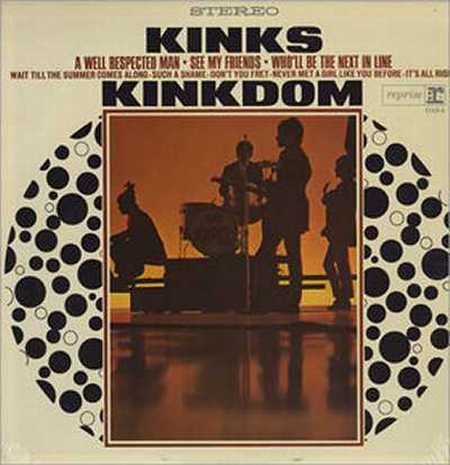 Kinkdom (sometimes referred to as Kinks Kinkdom) is a US only album by the English band The Kinks, released in 1965. As with the Kinks-Size album, it is made up mainly of songs not released on an equivalent UK LP. The album charted, peaking at number 47. The album takes all four tracks from the UK Kwyet Kinks EP (including both sides of the recent hit US single "A Well Respected Man"), adding "Naggin' Woman" (left off the US version of their previous LP, Kinda Kinks), recent US singles "Who'll Be the Next in Line" (its B-side was already included on the US version of Kinda Kinks), "See My Friends"/"Never Met a Girl Like You Before" and B-side "I Need You" (A-side "Set Me Free" had again already been included on the US Kinda Kinks LP) as well as two older tracks. "It's Alright" was the B-side of breakthrough 1964 single "You Really Got Me" but had as yet not been included on a US LP. "Louie Louie", another 1964 track, had however already been included on Kinks-Size. This was the last US only studio album released by the Kinks. Starting with The Kink Kontroversy, Reprise issued albums identical to the UK versions.01 - A Well Respected Man02 - Wait Till The Summer Comes Along03 - Such A Shame04 - See My Friends05 - Never Met A Girl Like You Before06 - Sittin' On My Sofa07 - Dedicated Follower Of Fashion08 - Who'll Be The Next In Line09 - Don't You Fret10 - I Need You11 - It's Alright12 - I'm Not Like Everybody ElseLINK Kinkdom (sometimes referred to as Kinks Kinkdom) is a US only album by the English band The Kinks, released in 1965. As with the Kinks-Size album, it is made up mainly of songs not released on an equivalent UK LP. The album charted, peaking at number 47. The album takes all four tracks from the UK Kwyet Kinks EP (including both sides of the recent hit US single "A Well Respected Man"), adding "Naggin' Woman" (left off the US version of their previous LP, Kinda Kinks), recent US singles "Who'll Be the Next in Line" (its B-side was already included on the US version of Kinda Kinks), "See My Friends"/"Never Met a Girl Like You Before" and B-side "I Need You" (A-side "Set Me Free" had again already been included on the US Kinda Kinks LP) as well as two older tracks. "It's Alright" was the B-side of breakthrough 1964 single "You Really Got Me" but had as yet not been included on a US LP. "Louie Louie", another 1964 track, had however already been included on Kinks-Size. This was the last US only studio album released by the Kinks. Starting with The Kink Kontroversy, Reprise issued albums identical to the UK versions.01 - A Well Respected Man02 - Wait Till The Summer Comes Along03 - Such A Shame04 - See My Friends05 - Never Met A Girl Like You Before06 - Sittin' On My Sofa07 - Dedicated Follower Of Fashion08 - Who'll Be The Next In Line09 - Don't You Fret10 - I Need You11 - It's Alright12 - I'm Not Like Everybody ElseLINK |
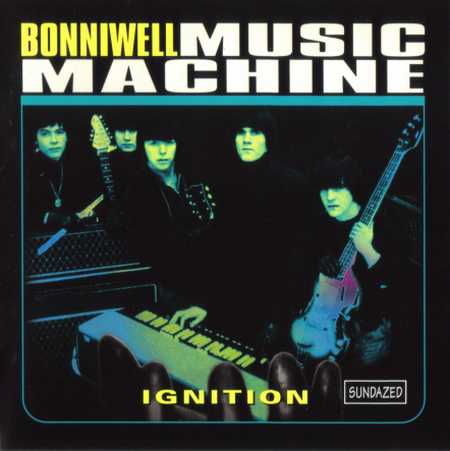 The Music Machine (1965–1969) was an American garage rock and psychedelic (sometimes referred to as garage punk) band from the late 1960s, headed by singer-songwriter Sean Bonniwell and based in Los Angeles. The band sound was often defined by fuzzy guitars and a Farfisa organ. Their original look consisted of all-black clothing, (dyed) black moptop hairstyles and a single black glove. The group came together as The Ragamuffins in 1965, but became The Music Machine in 1966. In addition to Bonniwell, the original line-up consisted of Ron Edgar (drums), Mark Landon (guitar), Keith Olsen (bass), and Doug Rhodes (organ). In 2000, this Bonniwell Music Machine album was released on Sundazed Records. This is a collection of songs from the unreleased 1969 album, as well as demo tracks from the band's Raggamuffin days in 1965.01 - Everything Is Everything02 - Two Much03 - Advise And Consent04 - This Should Make You Happy05 - Black Snow06 - Chances07 - Mother Nature-Father Earth08 - Talk Me Down09 - Dark White10 - Push Don't Pull11 - Smoke And Water12 - King Mixer13 - Unca Tinka Ty14 - Citizen Fear15 - Worry (Instrumental)16 - Worry (Vocal)17 - Tell Me What You Got18 - Point Of No Return19 - 902LINK The Music Machine (1965–1969) was an American garage rock and psychedelic (sometimes referred to as garage punk) band from the late 1960s, headed by singer-songwriter Sean Bonniwell and based in Los Angeles. The band sound was often defined by fuzzy guitars and a Farfisa organ. Their original look consisted of all-black clothing, (dyed) black moptop hairstyles and a single black glove. The group came together as The Ragamuffins in 1965, but became The Music Machine in 1966. In addition to Bonniwell, the original line-up consisted of Ron Edgar (drums), Mark Landon (guitar), Keith Olsen (bass), and Doug Rhodes (organ). In 2000, this Bonniwell Music Machine album was released on Sundazed Records. This is a collection of songs from the unreleased 1969 album, as well as demo tracks from the band's Raggamuffin days in 1965.01 - Everything Is Everything02 - Two Much03 - Advise And Consent04 - This Should Make You Happy05 - Black Snow06 - Chances07 - Mother Nature-Father Earth08 - Talk Me Down09 - Dark White10 - Push Don't Pull11 - Smoke And Water12 - King Mixer13 - Unca Tinka Ty14 - Citizen Fear15 - Worry (Instrumental)16 - Worry (Vocal)17 - Tell Me What You Got18 - Point Of No Return19 - 902LINK |
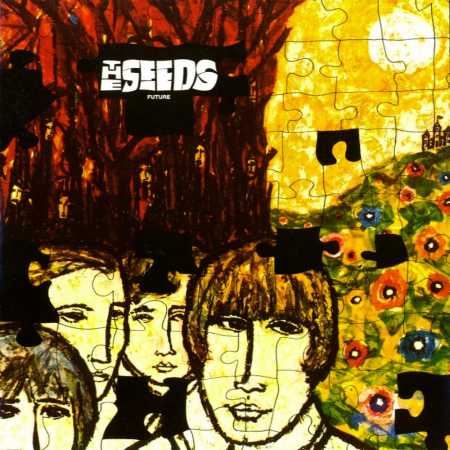 The Seeds were an American rock band. The group, whose repertoire spread between garage rock and acid rock, are considered one of the pioneers of punk rock. Lead singer Sky Saxon had a musical career that went back to pre-Beatle music days, when he recorded a few 45s under the name Richie Marsh. Born in Salt Lake City, he was based in Los Angeles from the early 1960s. The Seeds were formed in 1965 with Saxon joining as a response to an advertisement. Keyboardist Daryl Hooper was a major factor in the band's sound; the band was one of the first to utilize keyboard bass. Guitarists Jan Savage and Jeremy Levine with drummer Rick Andridge completed the original quintet, but Levine left shortly after the first recording sessions for personal reasons. Although Sky Saxon is usually credited as bass player, he did not play bass on any of the Seeds' recordings. This was handled by session men, usually one Harvey Sharpe. On stage, keyboardist Daryl Hooper would handle the bass parts via a separate bass keyboard, in the same way as Ray Manzarek did with the Doors. Their first two albums are today considered classics of '60s garage music. A later album (Future, 1967) was full-blown psychedelic rock, with ornate flower-themed graphics to match, and another was devoted to the blues (with liner notes by Muddy Waters).01 - Introduction - March Of The Flower Children02 - Travel With Your Mind03 - Out Of The Question04 - Painted Doll05 - Flower Lady And Her Assistant06 - Now A Man07 - A Thousand Shadows08 - Two Fingers Pointing On You09 - Where Is The Entrance Way To Play10 - Six Dreams11 - Fallin'LINK The Seeds were an American rock band. The group, whose repertoire spread between garage rock and acid rock, are considered one of the pioneers of punk rock. Lead singer Sky Saxon had a musical career that went back to pre-Beatle music days, when he recorded a few 45s under the name Richie Marsh. Born in Salt Lake City, he was based in Los Angeles from the early 1960s. The Seeds were formed in 1965 with Saxon joining as a response to an advertisement. Keyboardist Daryl Hooper was a major factor in the band's sound; the band was one of the first to utilize keyboard bass. Guitarists Jan Savage and Jeremy Levine with drummer Rick Andridge completed the original quintet, but Levine left shortly after the first recording sessions for personal reasons. Although Sky Saxon is usually credited as bass player, he did not play bass on any of the Seeds' recordings. This was handled by session men, usually one Harvey Sharpe. On stage, keyboardist Daryl Hooper would handle the bass parts via a separate bass keyboard, in the same way as Ray Manzarek did with the Doors. Their first two albums are today considered classics of '60s garage music. A later album (Future, 1967) was full-blown psychedelic rock, with ornate flower-themed graphics to match, and another was devoted to the blues (with liner notes by Muddy Waters).01 - Introduction - March Of The Flower Children02 - Travel With Your Mind03 - Out Of The Question04 - Painted Doll05 - Flower Lady And Her Assistant06 - Now A Man07 - A Thousand Shadows08 - Two Fingers Pointing On You09 - Where Is The Entrance Way To Play10 - Six Dreams11 - Fallin'LINK |
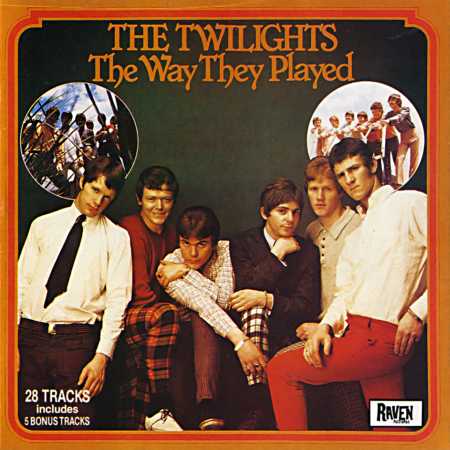 The Twilights were an Australian rock music group of the mid to late 1960s. Alongside their own career successes, The Twilights are also notable for the inclusion of vocalist Glenn Shorrock, who later fronted Axiom, Esperanto and Little River Band, and guitarist Terry Britten who went on to become an internationally successful songwriter and producer and pen major hits for artists such as Tina Turner. Alongside The Easybeats and The Masters Apprentices, The Twilights are widely considered to be one of the most significant Australian rock groups of the 1960s. Highly popular bands with teenage audiences, they were renowned for their musical excellence and live prowess, as well as their on-stage humour, and they were held in high respect by fellow musicians. The group is also notable as one of the few major Australian rock bands of the period to retain the same personnel for virtually all of its career. Like most of their contemporaries, they began as a cover band, playing accomplished renditions of hits by popular overseas bands of the era such as The Beatles, The Who and The Small Faces, and their early hits in Australia were all cover versions. Frank Barnard - drums (1964–65), Peter Brideoake – rhythm guitar, vocals, Terry Britten – lead guitar,vocals, John Bywaters - bass, Clem "Paddy" McCartney – lead vocals, Laurie Pryor - drums (1965–69) and Glenn Shorrock – lead vocals.01 - If She Finds Out02 - It's Dark03 - Bad Boy04 - Baby Let Me Take You Home05 - Sorry She's Mine06 - Needle In A Haystack07 - I Won't Be The Same Without Her08 - (I'll Be True To You) Yes I Will09 - You've Got Soul10 - What's Wrong With The Way I Live11 - 9.5012 - Cathy Come Home13 - Young Girl14 - Time & Motion Study Man15 - The Way They Play16 - Always17 - Once Upon A Twilight18 - What A Silly Thing To Do19 - Paternosta Row20 - Comin' On Down21 - Lotus22 - 2,000 Weeks (By Terry Britten)23 - John Hardy (Bonus)24 - I'm Noth Talking (Bonus)25 - Bessemae (Bonus)26 - Mr. Nice (Bonus)27 - Tell Me Goodbye (Bonus)28 - Bargain Day (Bonus) (By Terry Britten)LINK The Twilights were an Australian rock music group of the mid to late 1960s. Alongside their own career successes, The Twilights are also notable for the inclusion of vocalist Glenn Shorrock, who later fronted Axiom, Esperanto and Little River Band, and guitarist Terry Britten who went on to become an internationally successful songwriter and producer and pen major hits for artists such as Tina Turner. Alongside The Easybeats and The Masters Apprentices, The Twilights are widely considered to be one of the most significant Australian rock groups of the 1960s. Highly popular bands with teenage audiences, they were renowned for their musical excellence and live prowess, as well as their on-stage humour, and they were held in high respect by fellow musicians. The group is also notable as one of the few major Australian rock bands of the period to retain the same personnel for virtually all of its career. Like most of their contemporaries, they began as a cover band, playing accomplished renditions of hits by popular overseas bands of the era such as The Beatles, The Who and The Small Faces, and their early hits in Australia were all cover versions. Frank Barnard - drums (1964–65), Peter Brideoake – rhythm guitar, vocals, Terry Britten – lead guitar,vocals, John Bywaters - bass, Clem "Paddy" McCartney – lead vocals, Laurie Pryor - drums (1965–69) and Glenn Shorrock – lead vocals.01 - If She Finds Out02 - It's Dark03 - Bad Boy04 - Baby Let Me Take You Home05 - Sorry She's Mine06 - Needle In A Haystack07 - I Won't Be The Same Without Her08 - (I'll Be True To You) Yes I Will09 - You've Got Soul10 - What's Wrong With The Way I Live11 - 9.5012 - Cathy Come Home13 - Young Girl14 - Time & Motion Study Man15 - The Way They Play16 - Always17 - Once Upon A Twilight18 - What A Silly Thing To Do19 - Paternosta Row20 - Comin' On Down21 - Lotus22 - 2,000 Weeks (By Terry Britten)23 - John Hardy (Bonus)24 - I'm Noth Talking (Bonus)25 - Bessemae (Bonus)26 - Mr. Nice (Bonus)27 - Tell Me Goodbye (Bonus)28 - Bargain Day (Bonus) (By Terry Britten)LINK |
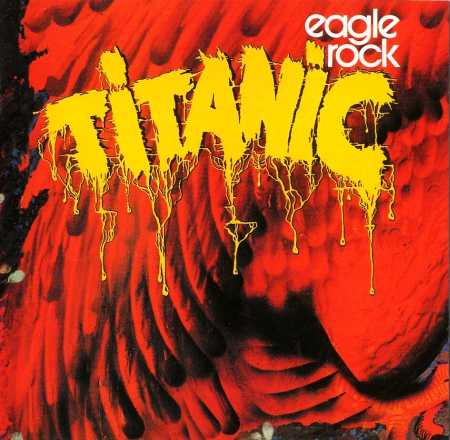 Titanic was a rock band from Norway, which also included a British member in its line-up. It was first active from 1969 to 1979, and also reformed twice. The group was made up of Kenny Aas, Kjell Asperud, John Lorck, Janny Løseth, Roy Robinson (lead singer) and for a short time around their chart success, John Williamson. They formed in 1969, and released several successful albums and singles before disbanding in 1979. The main composer was the group founder Janny Loseth, with Roy Robinson supplying the primarily English language based lyrics. In October 1971 Titanic reached Number 5 in the UK Singles Chart, with their instrumental track, "Sultana". It was performed in the style of the then popular band, Santana. The tune also appeared on their Titanic's album Sea Wolf. Eagle Rock from 1973 is the third release of the band.01 - One Night At Eagle Rock02 - All Around You03 - One Of Your Kind04 - Heie Valenga05 - Dying Sun06 - And It's Music07 - Richmond Express08 - Maureen09 - The Skeleton10 - Macumba. ( Bonus Track )10 - Rain 2000 (Bonus Track)11 - Blond (Bonus Track)11 - Midnight Sadness. ( Bonus Track )LINK Titanic was a rock band from Norway, which also included a British member in its line-up. It was first active from 1969 to 1979, and also reformed twice. The group was made up of Kenny Aas, Kjell Asperud, John Lorck, Janny Løseth, Roy Robinson (lead singer) and for a short time around their chart success, John Williamson. They formed in 1969, and released several successful albums and singles before disbanding in 1979. The main composer was the group founder Janny Loseth, with Roy Robinson supplying the primarily English language based lyrics. In October 1971 Titanic reached Number 5 in the UK Singles Chart, with their instrumental track, "Sultana". It was performed in the style of the then popular band, Santana. The tune also appeared on their Titanic's album Sea Wolf. Eagle Rock from 1973 is the third release of the band.01 - One Night At Eagle Rock02 - All Around You03 - One Of Your Kind04 - Heie Valenga05 - Dying Sun06 - And It's Music07 - Richmond Express08 - Maureen09 - The Skeleton10 - Macumba. ( Bonus Track )10 - Rain 2000 (Bonus Track)11 - Blond (Bonus Track)11 - Midnight Sadness. ( Bonus Track )LINK |
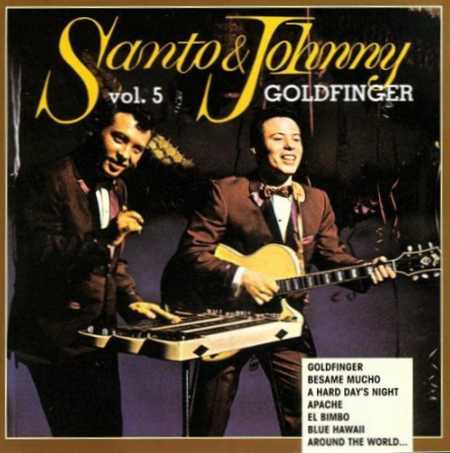 Santo & Johnny were an Italian-American rock and roll duo from Brooklyn, New York, comprising brothers Santo and Johnny Farina. Santo and Johnny Farina were born in Brooklyn, New York. Their father was drafted into the Army while they were children and was stationed for some time in Oklahoma. After hearing a steel guitar on the radio, he wrote to his wife, "I'd like the boys to learn to play this instrument". Upon returning from World War II, the boys' father found a music teacher who gave the boys steel guitar lessons. When Santo was a teenager, he was able to get a local music store to modify an acoustic guitar, allowing him to play it like a steel guitar.01 - Moon River02 - Goldfinger03 - Besame Mucho04 - A Hard Day's Night05 - It's Wonderful06 - Apache07 - Green Eyes08 - Caravan09 - Brazilian Summer10 - El Bimbo11 - Judy In Disguise12 - Blue Hawaii13 - Lady14 - Lazy Day15 - Let's Go16 - Indian Lake17 - Maria Maria18 - Canadian Sunset19 - Along The Navajo Trail20 - Around The WorldLINK Santo & Johnny were an Italian-American rock and roll duo from Brooklyn, New York, comprising brothers Santo and Johnny Farina. Santo and Johnny Farina were born in Brooklyn, New York. Their father was drafted into the Army while they were children and was stationed for some time in Oklahoma. After hearing a steel guitar on the radio, he wrote to his wife, "I'd like the boys to learn to play this instrument". Upon returning from World War II, the boys' father found a music teacher who gave the boys steel guitar lessons. When Santo was a teenager, he was able to get a local music store to modify an acoustic guitar, allowing him to play it like a steel guitar.01 - Moon River02 - Goldfinger03 - Besame Mucho04 - A Hard Day's Night05 - It's Wonderful06 - Apache07 - Green Eyes08 - Caravan09 - Brazilian Summer10 - El Bimbo11 - Judy In Disguise12 - Blue Hawaii13 - Lady14 - Lazy Day15 - Let's Go16 - Indian Lake17 - Maria Maria18 - Canadian Sunset19 - Along The Navajo Trail20 - Around The WorldLINK |
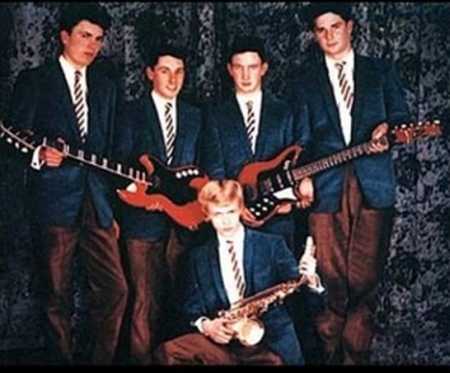 The Konrads were David Bowie's first professional band. The group consisted of: David Jones, (David's real name), (vocals, tenor saxophone), Neville Wills (guitar), Alan Dodds (guitar), Dave Crook (drums), George Underwood (vocals). George Underwood left after a short time. Apparently the name Kon-rads came about whilst they were appearing with Jess Conrad, who introduced them as "my Conrads". The hyphen was removed at David's insistence. By the end of 1962 David Hadfield had replaced Dave Crook on drums. Also joining the band were Rocky Shahan (real name Chaudhari) on bass guitar and on vocals were Roger Ferris, and two sisters Christine and Stella Patton (now Gall). David changed his surname to 'Dave Jay' because he was inspired by Peter Jay And The Jaywalkers, who according to David were only one of two British bands that 'knew anything about saxophones'. On Friday, August 30th, The Konrads entered Decca Studios, Broadhurst Gardens in West Hampstead for the first time and cut their only recorded record entitled: 'I Never Dreamed'. The song was written by David, Roger Ferris and Alan Dodds, the main vocals are by Roger Ferris, with David taking the harmonies. Several acetates were cut by Decca. Drummer David Hadfield said the song concerned an 'air crash'. Soon after this recording, David left the band, though the band stayed together playing the club circuit and even toured as the opening act with The Rolling Stones. David said he became dissatisfied with The Konrads because of their choice of song repertoire. He wanted to play more blues numbers instead of the pop standards they chose to cover.01 - The Better I Know02 - Now I'm On My Way03 - It's Too Late04 - I'm Over You05 - Judgement Day06 - I Didn't Know How Much07 - I Thought Of You Last NightLINK |
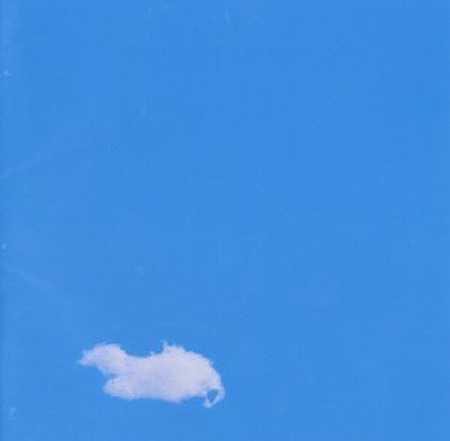 The Plastic Ono Band is a conceptual supergroup formed by John Lennon and Yoko Ono in 1969 before the dissolution of the Beatles. Among the various other members of the band were Eric Clapton, two more Beatles (George Harrison and Ringo Starr), artist Klaus Voormann, future Yes drummer Alan White, members of Delaney and Bonnie, the Who's drummer Keith Moon, New York band Elephant's Memory, Billy Preston, Nicky Hopkins, Phil Spector, drummer Jim Keltner, and, in a 2009 revival, Sean Lennon. The only album solely credited to the Plastic Ono Band, Live Peace in Toronto 1969, was recorded during the Toronto Rock and Roll Revival on September 13 that year and featured Eric Clapton on lead guitar, Klaus Voorman on bass (an old friend of Lennon's from Germany, who was famous for the cover art of the Beatles' Revolver album), and Alan White (later of Yes) on drums. Fronting the group, naturally, were Lennon and Ono. Lennon's performance has been cited as giving him the confidence to tell the other Beatles a few days later that he was leaving the band.01 - Blue Suede Shoes02 - Money (That's What I Want)03 - Dizzy Miss Lizzy04 - Yer Blues05 - Cold Turkey06 - Give Peace A Chance07 - Don't Worry Kyoko (Mummy's Only Looking For Her Hand In The Snow)08 - John, John (Let's Hope For Peace)LINK |
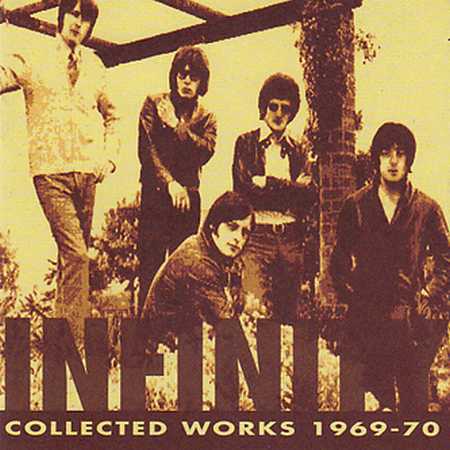 Legendary UK psych outfit Infinity formed in 1969 from the ashes of Chocolate Soup psych faves the Flies and Cymbaline. The mission: to develop a heavy psychedelic/pop sound, and express it through complex original songs. Thanks to some funky Hammond organ, punchy guitars, and the band s unique harmonies, Infinity were no run of the mill outfit. Upon their return to mainland England from a residency in Jersey, they joined the high-profile NEMS agency, alongside heavy hitters like Pink Floyd, Tyrannosaurus Rex, Soft Machine, and Pretty Things. In late 1969 and early 1970, following support slots with The Searchers and Marmalade, Infinity recorded original material for a proposed album, which was meant to explore time, space, matter, energy and chicken phal, said in some circles to be so hot in a culinary sense that it's temperature approached infinity, or so they have said, with tongue-in-cheek, we have to believe. Sadly, they broke up soon after the sessions. The good news is that the band left behind the recordings presented on this disc, which can now be enjoyed in the digital format after the passage of more than four decades!(Amazon)01 - Venetian Glass02 - Space Shanty03 - Same Girl04 - Taxman05 - (I'm In Love With) A Girl Like06 - I've Got You Under My Skin (In07 - Time Keeper08 - Venetian Glass (Instrumental)09 - Pattern People10 - (I'm In Love With) A Girl Like11 - I've Got You Under My Skin12 - Taxman (Instrumental)LINK |
 A Heavy Psych/Hard Rock guitarist named John Thomas seems to have as much chance of being recognized as an individual as a fire hydrant in an urban setting. An attached nickname can sometimes be helpful when faced with such a challenge, and this Australian-born performer came up with a good one when he dubbed himself Creepy John Thomas after moving to London.(OoD). "Brother Bat Bone” sounds at times like a mixture of Captain Beefheart and the Pink Fairies. This is a rather irresistable progressive blues/boogie album. A totally inspired effort from start to finish with emotionally strong, at times deeply moving vocals, tremendous axework and a loose, groovy rhythm section. "Creepy” John Thomas / lead vocals, guitar, Andy Marx / lead guitar, bass, Helmut Pohl / drums, Dave Hutchins / bass and Roy O’Temro / drums01 - Down In The Bottom02 - What´s The Matter With The Mil03 - Brother Bat Bone04 - This Is My Body05 - Standing In The Sunshine06 - 100 Lib. NoomyLINK |
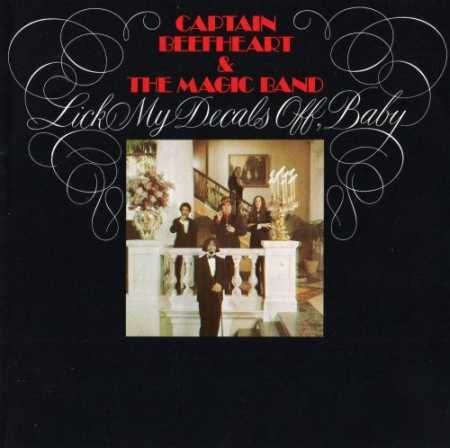 Lick My Decals Off, Baby is a record by Captain Beefheart & the Magic Band released in 1970 on Frank Zappa's Straight Records label. The follow up to his Trout Mask Replica, it is regarded by some critics and listeners as superior to the famous 1969 recording, and was Van Vliet's personal favourite. Don Van Vliet said that the title is an encouragement to "get rid of the labels," and to evaluate things according to their merits rather than according to superficial labels (or "decals"). Musicians on the album were Don Van Vliet, vocals; Elliot Ingber and Bill Harkleroad, guitars; Mark Boston, bass; Art Tripp, marimba, drums, and percussion; and John French, drums. French had been arranger and musical director on Trout Mask Replica. Van Vliet ejected French from the group – both figuratively and literally, by throwing him down a flight of stairs – shortly after Trout Mask Replica was completed, and these roles passed to guitarist Bill Harkleroad. French returned to the group shortly before recording began. The record contains some of Captain Beefheart's most experimental music and remains memorable for both the marimba playing of Art Tripp and for its concise instrumental work.01 - Lick My Decals Off, Baby02 - Doctor Dark03 - I Love You, You Big Dummy04 - Peon05 - Bellerin' Plain06 - Woe-Is-Uh-Me-Bop07 - Japan In A Dishpan08 - I Wanna Find A Woman That'll Hold My Big Toe Till I Have To Go09 - Petrified Forest10 - One Red Rose That I Mean11 - Buggy Boogie Woogie12 - Smithsonian Institute Blues (Or The Big Dig)13 - Space-Age Couple14 - Clouds Are Full Of Wine (Not Whiskey Or Rye)15 - Flash Gordon's ApeLINK |
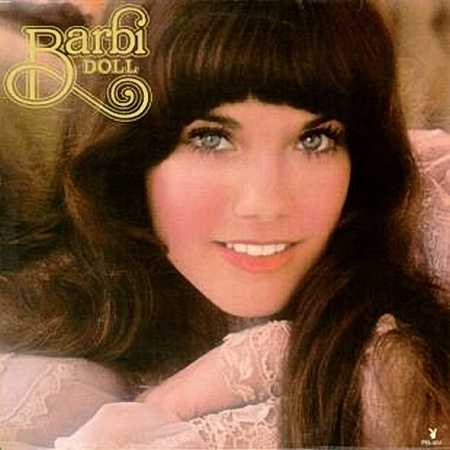
Barbi Benton is an American model, actress and Country Pop singer. Benton is known for her years as a regular on the country music series Hee Haw, appearing in comic skits with other cast members. She left the program after four seasons to concentrate on a more Hollywood-oriented career. She also starred in the short-lived ABC-TV comedy series Sugar Time! about an aspiring female rock group in 1977. Benton was also a recording artist with some success. Her record "Brass Buckles" (1975) was a top five hit on Billboard's country singles chart. Benton has recorded eight albums, the last of which she personally produced in 1979. She also composed the songs, sang them and played piano. One of her better-known songs was "Ain't That Just the Way" (1976), which was also a major hit for Lutricia McNeal in 1996, and was recorded by the Dutch singer Patricia Paay under the title Poor Jeremy in 1977. Barbi Doll from 1974 is the debut album by Barbi.01 - The Teddy Bear Song02 - Welcome Stranger03 - Queen Of The Silver Dollar04 - Put A Little Bit On Me05 - Loving Arms06 - That Country Boy Of Mine07 - I Can't Touch The Sun08 - Now I Law Me Down To Sleep With You09 - If You Can't Do It, That's All Right10 - I Don't Know If I'll Ever LoveLINK |
|
|
Statistics
Total online: 1 Guests: 1 Users: 0
|














